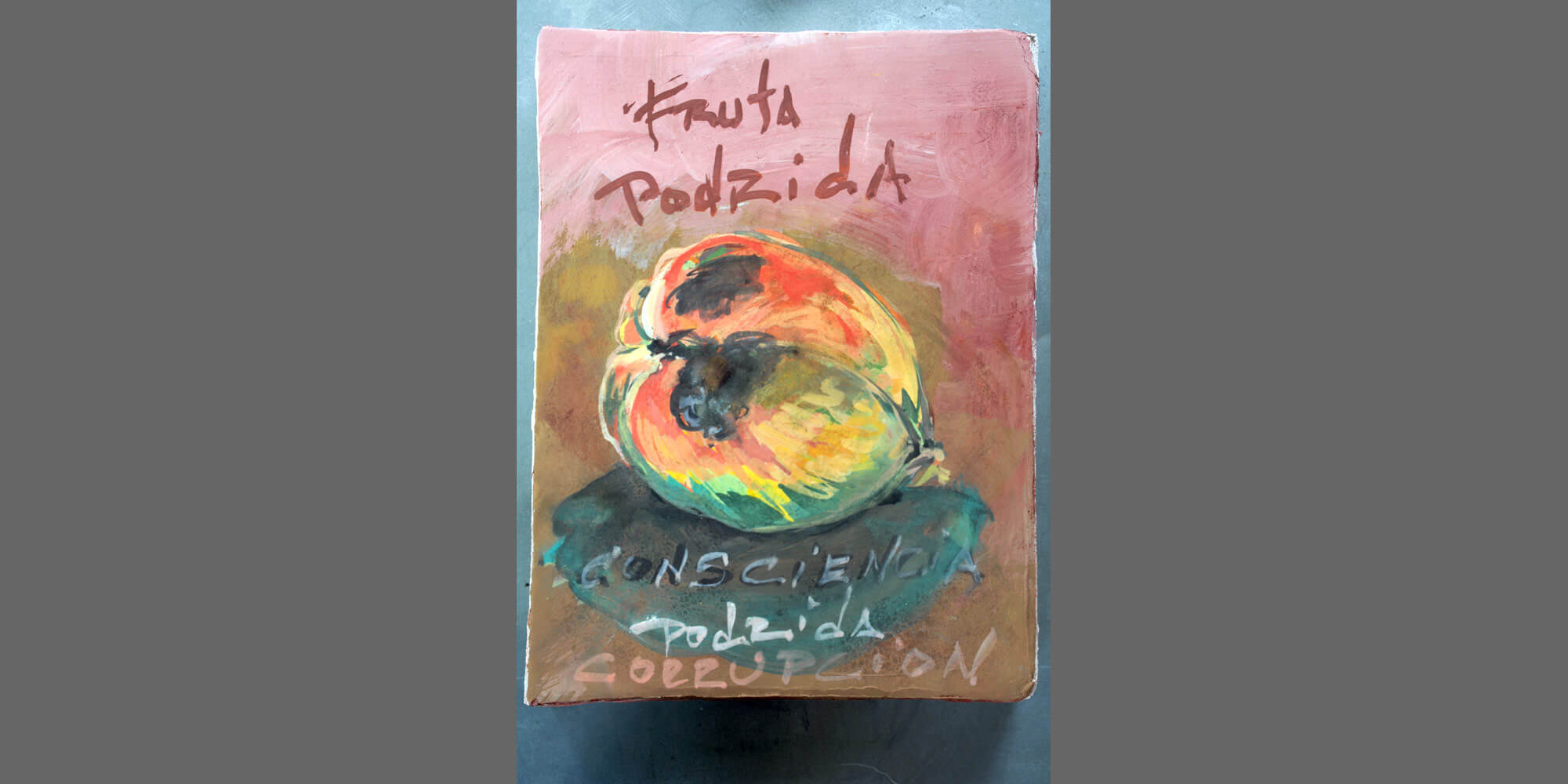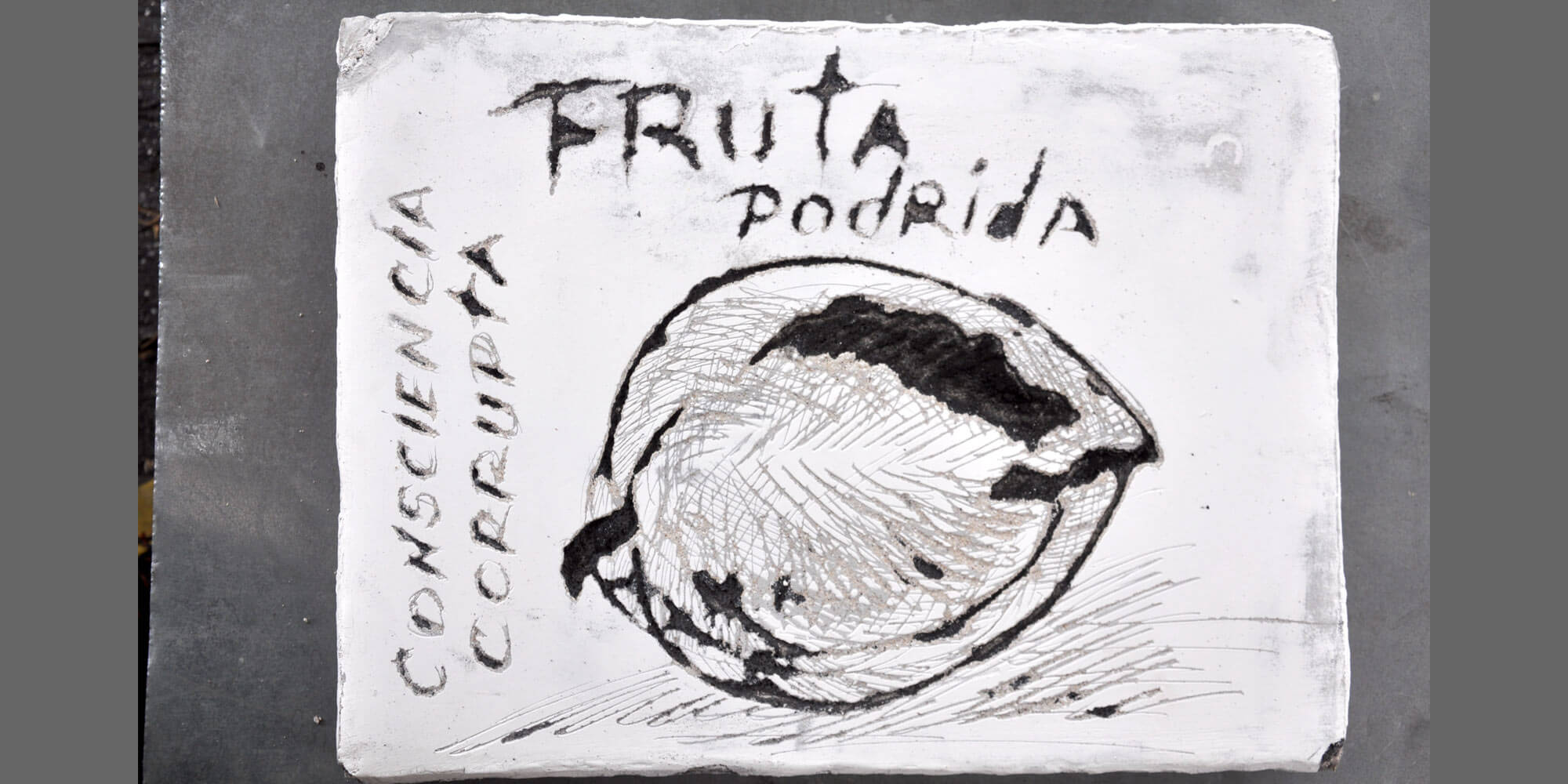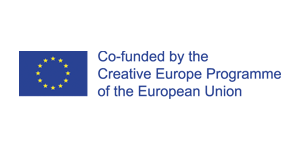Studiotopia Art and Science Residency
Ziel des Projekts The illness of the consciousness is corruption – smell and think ist es, uns für die Problematik des menschlichen Bewusstseins zu sensibilisieren und uns erkennen zu lassen, wie unbewusst wir uns dessen sind, was um uns herum geschieht.
Oswaldos Werk besteht aus skulpturalen Kompositionen, die aus Bildern, Objekten, Klängen und Gerüchen bestehen und Denkräume schaffen. Seine Kunstwerke hinterfragen konventionelle Vorstellungen von Wissen und Wahrnehmung.
Dies wirft neue Fragen auf: Wie kann man „Hintertüren“ finden, um auf unbewusste Weise in das Bewusstsein der ZuschauerInnen einzudringen, jenseits der eigenen Überzeugungen und Urteile? Wie kann man die Wahrnehmung der Menschen für die Perspektive des Anderen öffnen? Wie können wir anfangen, uns für die Welt um uns herum verantwortlich zu fühlen? Wie können wir unserem Planeten und seinen menschlichen und nicht-menschlichen BewohnerInnen wirklich zuhören?
Diese Fragen erforschen die nachhaltige Entwicklung aus dem Blickwinkel von Kunst und Wissenschaft.

The illness of the consciousness is corruption – smell and think, Oswaldo Macia (CO/UK) – artist, Emilia Leszkowicz (PL) – scientist, Chris Bean (IE) – scientist, Credit: Oswaldo Macia
Oswaldo Maciá creates olfactory-acoustic sculptures responding to time, place and the ever-changing nature of our planet. Maciá’s immersive scenarios of sound and smell are held in international art collections and have been exhibited globally, including at Tate Modern, Tate Britain, Manifesta 9, Venice Biennial, Daros Latinamerica, Riga Biennial, MOCO Montpellier Contemporain, and Porto Alegre Biennial. Maciá was born in the Caribbean city of Cartagena de Indias, Colombia. He lives and works in London and New Mexico.
Chris Bean is Senior Professor and Head of Geophysics at the Dublin Institute for Advanced Studies. His research interests cover the quantification of ocean- wave generated ambient microseism noise, ocean- wave parameter estimation from microseisms, temporal monitoring of water column and near seafloor properties using time-lapse ambient noise seismo-acoustics. He has also published widely on micro-seismicity associated with the failure of weak materials, especially on volcanoes.
Emilia Leszkowicz is an electrophysiologist based at University of Gdansk, Faculty of Biology, Department of Animal and Human Physiology with a strong track record of in vivo recordings in animals, and experience in human fMRI. Doctor of Philosophy, Neuroscience, University of Gdansk, Gdansk, Poland. Thesis: The role of particular neuromodulatory systems of the pedunculopontine tegmental nucleus in the regulation of hippocampal theta rhythm (2007).
Credits
The residency is part of STUDIOTOPIA project supported by the Creative Europe Programme of the European Union.






